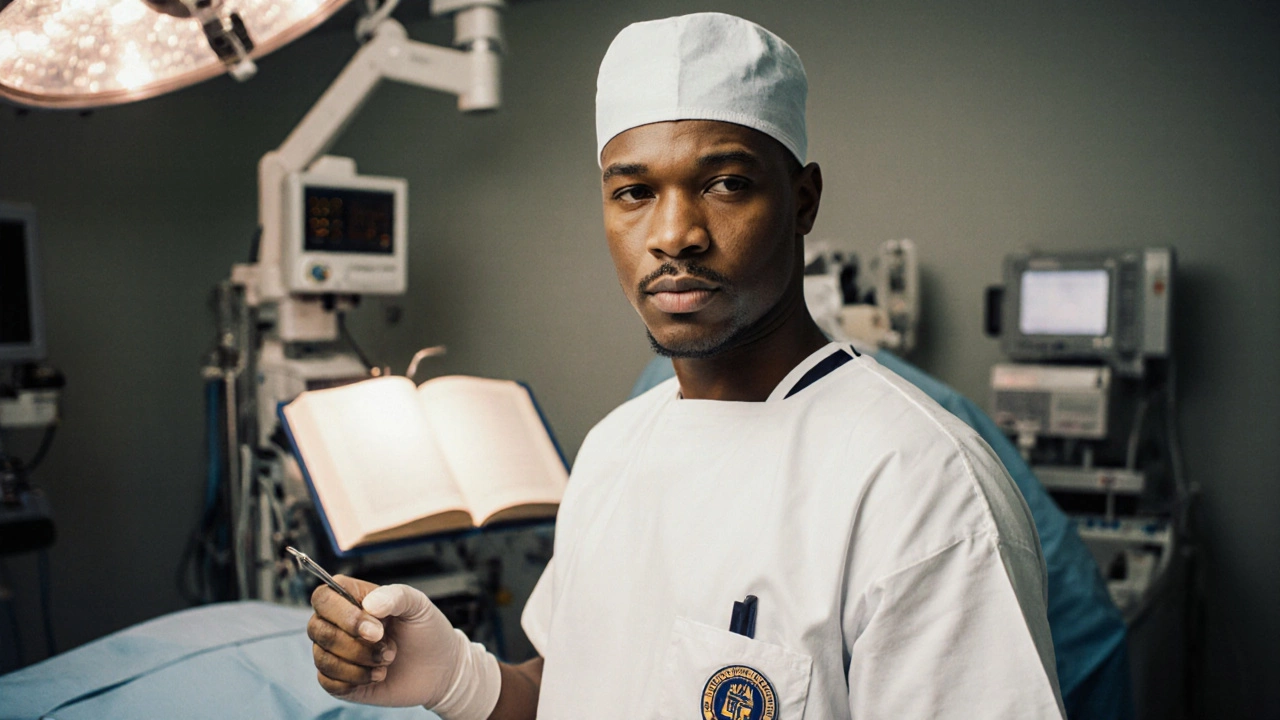
Doctor Wealth Builder Calculator
Build Your Wealth Plan
Calculate your potential net worth based on medical career choices and strategic ventures
Wealth Breakdown
Ever wondered how a medical professional can sit at the same table as the world’s top entrepreneurs? Meet the richest doctor on the planet today and see what it takes to turn a scalpel into a multibillion‑dollar brand.
Who is the richest doctor?
When Forbes ranks the wealthiest physicians, the name that always tops the list is Patrick Soon-Shiong, a South‑African‑born American surgeon‑entrepreneur whose net worth is estimated at $8.5billion in 2025. Soon‑Shiong is a transplant surgeon turned biotech mogul who built a sprawling portfolio of companies under the umbrella of NantWorks. His journey from operating rooms to boardrooms shows how a medical career can fuel global business success.
Early life and medical training
Born in Port Elizabeth, South Africa, Patrick moved to the United States for graduate studies. He earned an MD from the University of Pennsylvania School of Medicine and later completed a residency at the University of California, San Diego (UCSD) where he specialized in transplant surgery. While at UCSD, he co‑authored several pioneering papers on immunosuppressive therapy, laying the scientific groundwork for his later ventures.
From surgeon to billionaire: the key milestones
- NantWorks (founded 2011) - a holding company that now spans health, AI, and data analytics. NantWorks houses over 30 subsidiaries, including biotech, medical imaging and digital health platforms.
- NantHealth - the flagship health‑tech arm that provides cloud‑based patient data solutions to hospitals worldwide.
- 2007: Sale of Abraxis BioScience, a cancer‑drug developer he co‑founded, to Celgene for $3.1billion.
- 2013: Purchase of the Los Angeles Times for $250million, diversifying his portfolio beyond health.
Each deal added layers of cash flow and brand value, turning his personal net worth into a billion‑dollar figure.
Net worth in 2025 - a breakdown
According to the latest Bloomberg Billionaires Index, Patrick’s assets are spread across the following categories:
- Equity in NantWorks subsidiaries - roughly $5.2billion.
- Real estate investments - $1.1billion, including commercial properties in Silicon Valley and a private campus in San Diego.
- Philanthropic trusts - $900million earmarked for cancer research and education.
- Media holdings - $300million in the LosAngeles Times and related digital assets.
These figures illustrate that his fortune isn’t just from a high‑salary practice; it’s built on scalable, tech‑driven health solutions.

How medical tourism amplified his wealth
Medical tourism refers to patients traveling across borders for affordable, high‑quality care. Soon‑Shiong’s companies, especially NantHealth’s imaging platforms, are widely used in hubs like India, Thailand and Mexico. By offering AI‑enhanced diagnostics at a fraction of the cost in the U.S., his tech enables clinics abroad to attract wealthy patients seeking cutting‑edge treatment without the U.S. price tag.
This ecosystem creates two revenue streams: licensing fees from foreign hospitals and data‑analytics services that feed back into his research labs, accelerating drug discovery and further boosting company valuation.
Who else is in the billionaire‑doctor club?
| Doctor | Net Worth (USD) | Primary Source of Wealth | Medical Specialty |
|---|---|---|---|
| Patrick Soon‑Shiong | $8.5B | Biotech & Health‑Tech Enterprises | Transplant Surgery |
| Devi Shetty | $2.2B | Cardiac Surgery Chain (Narayana Health) | Cardiac Surgery |
| Harold E. Varmus | $1.5B | Pharmaceutical Investments | Oncology Research |
While Devi Shetty’s model hinges on low‑cost cardiac care for millions of Indian patients, and Harold Varmus capitalizes on oncology patents, all three share a common thread: leveraging medical expertise to create scalable businesses.
What aspiring doctors can learn
- Think beyond clinical practice. Identify a niche where your medical knowledge solves a market problem-whether it’s a device, a data platform, or a service.
- Partner with technologists. The most valuable health companies blend medicine with AI, cloud computing and biotech.
- Consider global demand. Nations like India, Brazil and the UAE are hungry for advanced, affordable care. Position your product for medical‑tourism markets early.
- Reinvest profits into R&D. Continuous innovation keeps your valuation rising.
These steps don’t guarantee you’ll become a billionaire, but they turn a good salary into a sustainable wealth engine.

Potential pitfalls and how to avoid them
Even the richest doctors have stumbled. Over‑expansion without solid data, ignoring regulatory nuances, and underestimating cultural differences in medical tourism can drain resources quickly. Mitigate risk by hiring compliance experts, piloting services in one region before scaling, and maintaining transparent patient outcomes.
Future outlook for doctor‑entrepreneurs
The next wave of wealth creation will likely combine genomics, personalized AI, and telehealth. Doctors who can bridge patient care with these technologies will sit at the intersection of health and finance, just like Patrick Soon‑Shiong does today.
Frequently Asked Questions
Who is currently the richest doctor in the world?
As of 2025, the title belongs to Patrick Soon‑Shiong, whose net worth is around $8.5billion.
How did he make his fortune?
He founded and sold biotech companies, built the health‑tech conglomerate NantWorks, and invested in media and real‑estate. Licensing his AI‑driven medical platforms worldwide added huge recurring revenue.
Is medical tourism a big part of his wealth?
Yes. NantHealth’s imaging and data solutions are used in many medical‑tourism hubs, generating licensing fees and expanding his market reach beyond the United States.
How does his net worth compare with other wealthy doctors?
The gap is sizable: Devi Shetty, a cardiac surgeon from India, holds about $2.2billion, while oncology researcher Harold Varmus sits near $1.5billion. Soon‑Shiong’s tech‑driven model dwarfs traditional clinical earnings.
Can regular doctors become billionaires?
It’s rare, but possible. The key is turning medical expertise into scalable products or services that solve global health challenges.

Write a comment